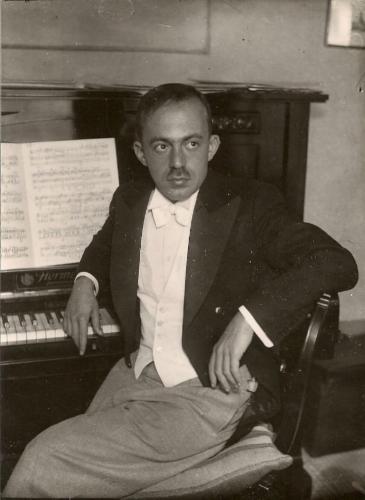Sextet voor vijf blaasinstrumenten en piano opus 70
By Géza Frid
Details
Konflikt no. 1
Konflikt no. 2
Viribus unitis
Commissioned by the Nederlandsche Radio Unie and dedicated to the Radio Filharmonisch Sextet.
[notes in Dutch] De opdracht was muziek met een diverterend karakter te schrijven. Dit karakter zocht de componist niet in de richting van de Lichte Muze, doch in de speelvreugde en in de opposante speelmanier van blazers enerzijds en piano anderzijds.
Zo trachten in het eerste deel de blazers bij de overheersende pianopartij telkens ertussen te komen, terwijl in het tweede deel de piano de onverstoorbaar doorgaande blazers probeert te verstoren. Slechts in het derde deel gaan alle zes instrumenten met vereende krachten aan het werk.

